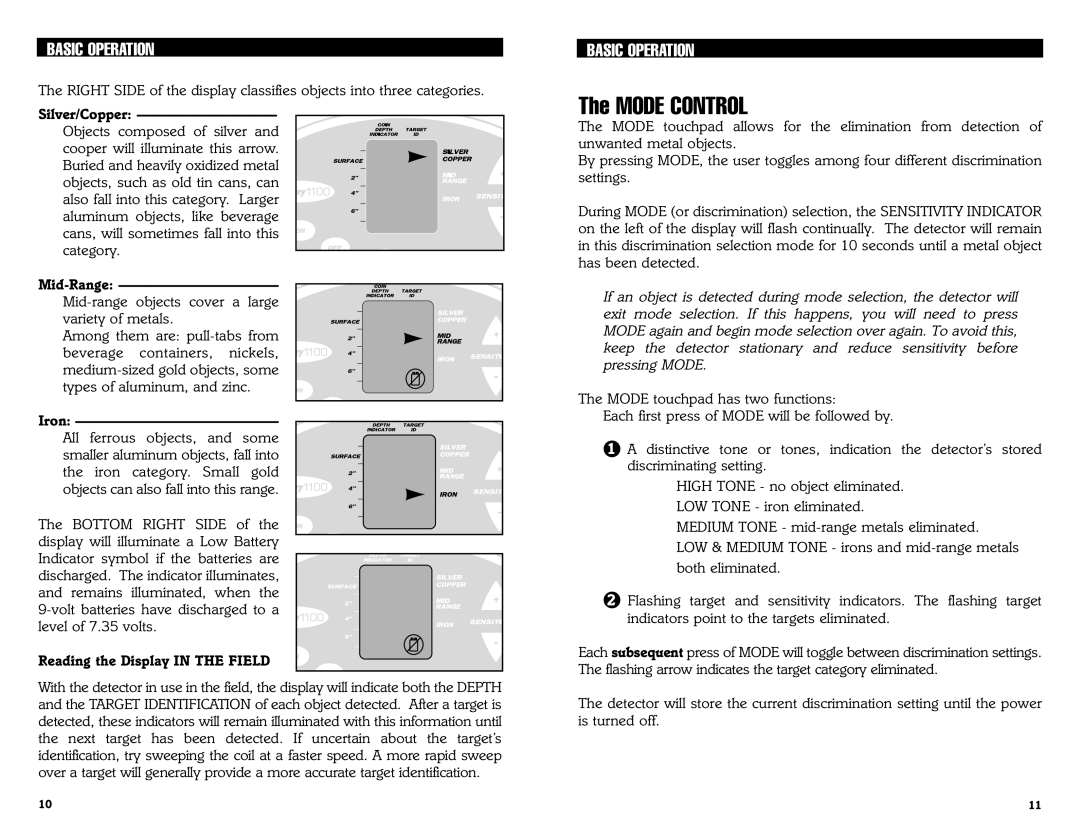1100 specifications
The Bounty Hunter 1100 is a versatile metal detector renowned for its user-friendly features and advanced detection technologies, making it an excellent choice for enthusiasts and amateur treasure hunters alike. This device is built to locate a variety of metal objects including coins, jewelry, relics, and even larger items buried deep underground.One of the main features of the Bounty Hunter 1100 is its advanced discrimination capabilities. Users can easily differentiate between valuable targets and unwanted metals such as iron or aluminum. This is particularly beneficial for those searching in densely populated areas or sites where trash metals abound. The detector offers an adjustable discrimination mode, allowing users to customize their experience based on specific requirements and target preferences.
Another notable characteristic is the depth indicator, which provides a visual representation of how deep a detected object is buried. This feature enhances the user’s efficiency by informing them whether it’s worth digging or moving on to a different area. Additionally, the Bounty Hunter 1100 features a sensitivity adjustment option that lets users increase or decrease the detector's responsiveness to metal signals. This adaptability is what sets it apart, particularly for those hunting in varying soil conditions.
The ergonomic design of the Bounty Hunter 1100 is another highlight, featuring an adjustable stem to accommodate users of different heights. The lightweight construction allows for extended use without causing fatigue, making it especially appealing for long treasure hunting excursions. Its intuitive control panel is designed for ease of use, with straightforward buttons and a clear LCD display, making it accessible even for beginners.
Furthermore, the Bounty Hunter 1100 integrates advanced technology, including a target identification system that provides numeric values indicating the type of metal detected. This real-time feedback helps reduce the chances of false alarms and increases the likelihood of finding valuable items. The operational frequency is optimized to enhance performance, ensuring reliable performance across a range of environments.
In summary, the Bounty Hunter 1100 is a comprehensive metal detector that combines sophisticated features with user-friendly design. With its depth indicator, adjustable discrimination, sensitivity adaptability, and ergonomic build, this device is perfect for treasure hunters looking to enhance their detecting experience. Whether searching for lost coins in a park or embarking on a historical artifacts hunt, the Bounty Hunter 1100 proves to be a valuable tool in the world of metal detecting.

